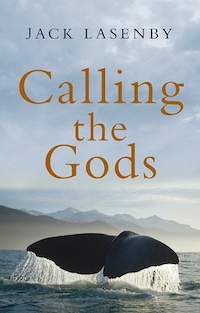I recently read that dystopia is the new vampire book and Jack Lasenby’s Calling the Gods is well within this genre. An engaging imagining of an alternative future, this book is the story of teenager, Selene, and the how she survives with a small group of children when her village is destroyed. So far good.
I’m liking
The core story- that of Selene and her survival- is strong and carefully told. Their motivations are complex and believable and the narrative has an authentic ring about it. The New Zealand coastline is changed but still clearly recognisable.
Things that made me go hmmmm
The narrative structure of this book is puzzling. There are three distinct narrative techniques- the first is that of Selene herself and this is, by far, the strongest voice. She is mature and thoughtful and her voice rings true. In the first part of the book, Selene also tells the story of her dead partner as a narrative back to him and although this seems like an interesting way to tell the backstory of the book is actually awkwardly handled. Lasenby’s narrative is best when Selene is left to tell her story without reflecting on it for our benefit.
Similarly, the last third or so of the book is interspersed with the voice of an older man from another world- perhaps the future, perhaps the past. He watches Selene and her group, unseen, and observes what is going on. And here’s the annoying bit: He tells us what her thinks in the most obvious and supercilious manner. Things that are sensitively and subtly shown in the main story are repeated in a heavy-handed and obvious way by the man. While I could see the point of Selene’s reflections of the past at the beginning of the book, I found this narrative technique utterly mystifying.
The end also felt quite rushed and it seemed a shame to wind up the story with quite such haste. While it was nice that the ending wasn’t all sugar-coated, the rush bothered me.
The conclusion
Oh, this could have been so good. The story itself has has so much potential and the main characters and tensions were clearly drawn. And yet, to my mind, it doesn’t reach it’s potential. Lasenby can be an excellent writer and this book has some compelling aspects but, to be honest, it felt like it could have benefited from a tough editor with a red pen.


